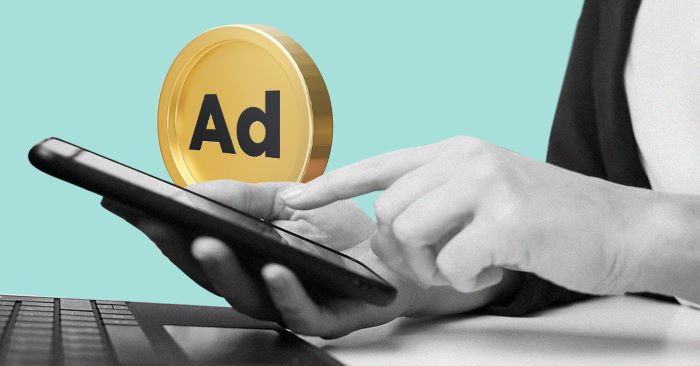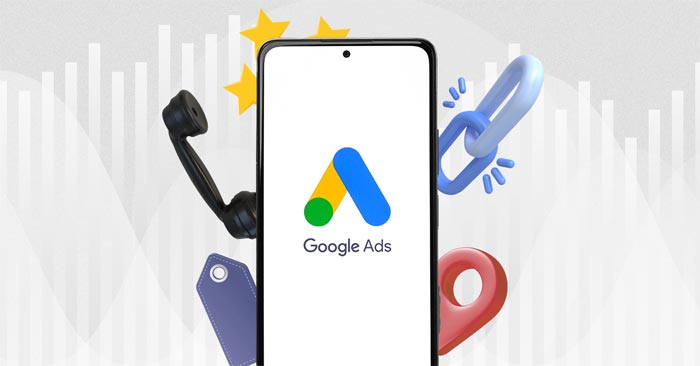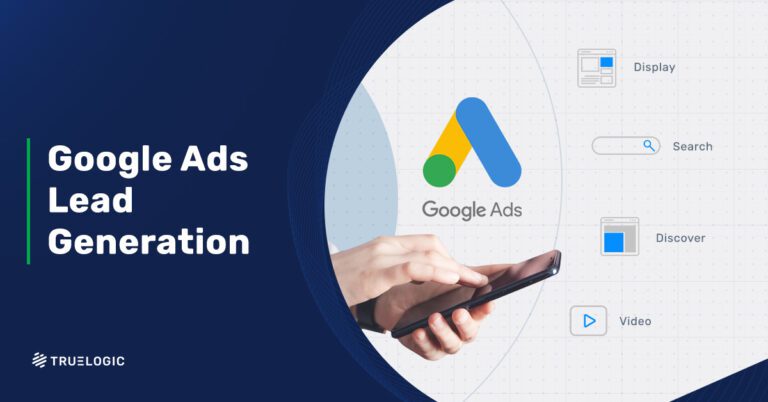What is PPC? Learn the Basics, How it Works, and Its Many Benefits

An effective digital marketing strategy doesn’t rely on just one tactic. After all, search engine optimization isn’t the end-all-be-all solution to generating qualified leads.
If your goals are to grow your website’s online visibility, drive traffic, and increase conversions — pay-per-click (PPC) advertising can help you accomplish all those things.
However, even though many businesses have PPC as a powerful tool in their promotional arsenal, PPC is still a concept that eludes many marketers. A lot of them still can’t pin down what is PPC exactly and how it works. But no matter how perplexing it is, businesses can’t afford to ignore the benefits that they can reap through this channel.
In this article, we’ll help you grasp what is PPC advertising by explaining its definition, its process, and its many benefits.
What is PPC advertising?
PPC advertising, or simply known as PPC, is a tactic where a brand sets up an ad online and pays each time a user clicks on the ad. Placing the ad online is free as the costs are only incurred when users interact or engage with the ad.
PPC advertising can be broken down into two main categories:
- Search advertising: Ads that appear as search results on Google, Bing, and other search engines
- Display advertising: Ads that appear as images, videos, or paid posts usually found on third-party websites and social media channels
- Retargeting: Ads that can be in the form of banners, text ads, or images. They’re a great way to remind users of something they searched for in the past, and encourage them to buy what they left behind, or purchase again. You can also take advantage of retargeting ads on other digital platforms such as email marketing.
While there are multiple platforms for PPC advertising, most marketers prefer using Google Ads for their PPC campaigns and it’s currently the most popular provider for PPC search advertising. This doesn’t come as a surprise as Google leads the Philippines’ search engine market with a 97% share of the market. As most people use Google to search for products and services, it’s the ideal place to put up paid search ads.
To determine which ads to show, PPC platforms have an auction process. Depending on the platform and ad type, this auction considers how much each advertiser bids, the quality of each ad, the ad’s relevance to a user’s search query, and various other factors.
PPC advertising also involves bidding on keywords, otherwise known as words and phrases that online users type into search engines. Marketers or advertisers choose the keywords they believe their target audience uses when searching for information related to the products and services they’re advertising.
How does PPC work?
Now that you know what is PPC, let’s talk about how it works for your business.
PPC advertising is composed of several steps. A step by step process would include things like determining your goals, setting a budget, making a keyword list, bidding on keywords, setting up different keyword campaigns, writing keyword-optimized headlines and ad copy, and then creating unique landing pages.
Let’s go through each of them.
Decide on your platforms
As mentioned above, there’s not just one type of PPC ad. You can set up PPC ads in search engines, on the websites your customers visit, or on social media.
With so many choices, you first decide on the goals you want to achieve. Once you’ve defined your goals, it’s easier to choose where you want your paid ads to show up. For instance, do you want to be at the top of the search results? Go for search ads. Or maybe you want to promote your products and services while gaining more followers on Facebook? Then social media ads sound like a great plan.
Perform keyword research
One of the major advantages of PPC advertising is that you can use keywords to target your most valuable audience and show up for customers who are ready to convert.
Keyword research lets you gain insight into the performance of specific keywords, the level of competition for that keyword, and the keyword’s average cost-per-click. All of these pieces of information help you decide if it’s worth it to target specific keywords.
Set up your budget
What is the ideal PPC advertising budget? When it comes to PPC, you decide exactly how much you pay for the ads or how much you’re going to bid for each keyword. But if you’re interested in an agency running your campaign for you, you’ll have to consider the costs in PPC management services. You can then begin to create a budget around their costs.
Once you arrive at an overall budget, you can divide what portion of the budget you’ll spend on ads and what part you’ll spend on management. The more detailed you are with your budget, the more you’ll be able to stay on track financially.
When you’re only starting out, spread your budget across all of your ad campaigns. Once you see results from your campaigns, you can focus more of your budget on better-performing keywords and campaigns.
For bids, decide on a budget with keyword competition as your basis. Choose a bid that stays within your budget but will give your ad a good ranking.
Set up your account on your chosen ad platform
If you plan to advertise on Google, you’ll have to sign up for a Google Ads account. Registration is free but in order to activate your account, you will have to provide a payment method and billing information. The platform needs payment information so that it knows where to charge your ad spend.
When setting up your first campaign, you can set an average amount for how much you’re willing to spend on your account per day. You will then provide information on who your target audience is, the keywords you want to bid on, and the geographic locations where you want your ads to show up.
You will then have to set your bid and write your ad. Be sure to link your ads to a landing page on your website where users can find information about making a purchase.
Once you’ve got all of that done, your PPC ad campaign is ready to go! Just wait for the clicks to roll in.
Analyze your ads to measure the success of your campaign and make improvements
A crucial part of a PPC advertising campaign is tracking its results. Without analyzing and tracking the performance of your PPC ads, you’re missing out on a trove of valuable information that can help improve your campaign and sales funnel.
To analyze and measure your PPC ads, link your Google Ads and Google Analytics accounts. After linking them, all of the information collected by your ads will be uploaded automatically into your Google Analytics account, making it easy for you to see important data about your PPC campaign.
The following metrics that you need to measure in relation to your sales funnel include:
- Impressions (Awareness Stage): Impressions are basically the number of times your ad is shown in search results or appeared on the Google Network. It’s important to track impressions as it tells you how many people saw your ad. Even if they don’t click on your link or purchase from your website, this is a step towards achieving brand recall as they will remember you for your catchy slogan or cool graphics.
- Click-through Rate (Information Stage): Your CTR refers to the number of clicks you received divided by the number of impressions. You want your campaigns to have high CTR because when more users click on your ad, they can view your content and learn more about your products, services, and business. Once they get valuable information, they are more likely to purchase. Your CTR shows how people respond to your ads, providing insight into your understanding of search intent, audience targeting, and more. It also impacts your CPC and quality score.
- Return Visitors (Consideration Stage): Return visits consist of users who have clicked on your ad and then revisited your site after a specific period. If they didn’t convert on the first and second visits, you can use remarketing ads or optimize your site to ensure they convert to purchases by the time they return.
- Conversions (Closing or Making the Sale Stage): To see the full extent of your ad campaign’s success, you’ll need to set up a conversion action within your Google Ads account. This action is anything you deem valuable or consider a conversion. This could be filling out a form on your landing page, clicking on the Contact Us button, or checking out one of the products featured in your ad. No matter what your conversion is, you can track it once you set up the appropriate conversion tracking tool. Google Ads has a comprehensive list of various ways to track conversions.
How does the PPC ad auction work?
We’ve just walked you through the entire PPC advertising process and answered what is PPC in marketing. However, in most cases, when people ask “What is PPC advertising?” or “How does PPC work?” they are curious about the auction process. After all, how do ad networks like Google ads choose which PPC ads to show?
Here’s an overview of how the auction for PPC search ads works:
- A user searches for a product like “women’s running shoes”
- A search engine determines if there have been bids on that keyword
- If no, the search engine delivers search results without ads
- If yes, the search engine starts its auction
- The search engine measures the quality of each ad, grades, and ranks the ads put up by advertisers based on several factors
- The search engine then delivers the highest-quality ads in the search results and charges advertisers on a pay-per-click basis
When it comes to the ad auction itself, ad networks have several steps and factors to deliver the most relevant ads to users. For instance, let’s take a look at Google Ads’ ad auction.
Once Google launches an ad auction, it looks at various factors to determine your Ad Rank. Ad Rank is Google’s way of determining the order of paid ads on a search results page. As a general rule, the ad with the highest Ad Rank gets the top position, the one with the second-highest Ad Rank gets the second position, and so on. Your Ad Rank is calculated by Google at every auction.
Google calculates your Ad Rank based on the following:
- Bid: This refers to the amount you’re willing to pay each time someone clicks on your ad. In most cases, bids are keyword-specific, meaning each keyword will differ in costs from other keywords. A high bid doesn’t automatically guarantee a win. Even if you bid low, you can still win the auction with a high-quality ad, which is your goal.
- Quality score: Google calculates this using your ad’s relevance to search queries, as well as expected CTR and landing page UX. This metric helps Google estimate the quality of your ads, landing pages, and keyword targeting. To give you a starting point in improving Quality Score and Ad Rank, you can check your Quality Score in Google Ads.
- Ad Rank thresholds: Thresholds refer to user attributes (location) and the device of the user (mobile vs. desktop). Thresholds can also vary based on the nature of a user’s search terms and the auctions for related queries. For instance, Ad Rank thresholds for the search team [wedding favors] could be informed by auctions for the search terms [wedding giveaways] or [party favors].
- Advertiser competition: Google scopes out other advertisers vying for the same keywords. To get the best position on the page, you’ll have to beat your competitors with better ad quality, bid amounts, or a mixture of both.
After your Ad Rank is determined by Google, it will then decide where to place you in search results. You win the auction by having the top Ad Rank but you can still earn a spot in the search results even if you don’t win, although you will be placed below higher quality ads. The higher your Ad Rank, the higher your position.
Google then calculates your cost-per-click based on the following:
Ad Rank of Advertiser Below You / Quality Score + $0.01 = Your CPC
After this step, the PPC ad auction is finally done.
Benefits of a PPC Advertising Campaign
We’ve talked about what is PPC advertising and how it works but what about its benefits? If you’re still unsure about setting up a PPC campaign or investing in PPC management services, here are a few ways in which PPC can benefit your business and improve your ROI.
Quick results
Unlike traditional advertising and other digital marketing strategies, PPC helps generate immediate leads. You can create and publish ads today and see results tomorrow. It’s a great way to advertise new products and temporary sales to boost immediate business.
Precise targeting
PPC gives you the ability to target your ideal customer. That way, you can display your ads directly in front of people who are most likely to convert or make a purchase. This helps you save on wasted ad spend and zero in on your target market, no matter how small or niche.
Reach local customers
About 45% of small businesses use PPC. If you’re not, your competition is already one step ahead of you, making your ability to attract local customers to suffer.
As you can decide who you want to reach with the ads you set up, you can appeal to the locals in your area, improving brand awareness and traffic into your store.
Only pay when they click
With PPC advertising, you only pay when a user clicks on your ad and gets redirected to your landing page or website. This ensures your ad spend is going towards prospects who are actually interested in your brand. And since you’re only paying when they click, you have more time and money to optimize landing pages and other end-of-funnel content.
A second chance with missed connections
If your repeat traffic is low, that means most of your visitors won’t be coming back. Through the use of remarketing ads, PPC advertising opens the door for a second chance with customers who visited your site in the past. Just because someone comes and goes doesn’t mean they’re not interested – they might have just been distracted in the past. Remarketing ads will help you cut through the distractions and keep prospects engaged with your brand, no matter how they found you originally.
Unleash Your Brand’s Potential with PPC Advertising
Now that you know what is PPC and its many complexities and benefits, you can get started with your PPC advertising today. It’s an effective strategy that will give you the boost you need to get an edge on your competition and stay ahead of them in the search engine results.
Whether you’re interested in a PPC campaign or a full digital marketing campaign, Truelogic can help. When you work with us, you’ll get a custom PPC campaign suited to the goals and initiatives of your business. More than just generating traffic, we help you achieve the ultimate goal: a greater revenue stream.
If you’d like to learn more about how PPC works, contact Truelogic today.










